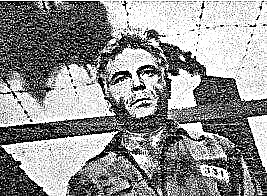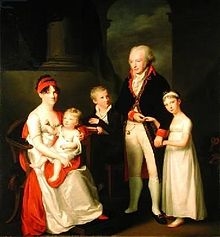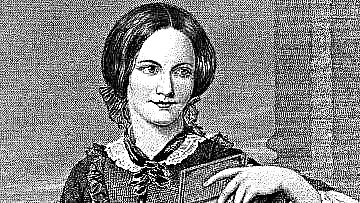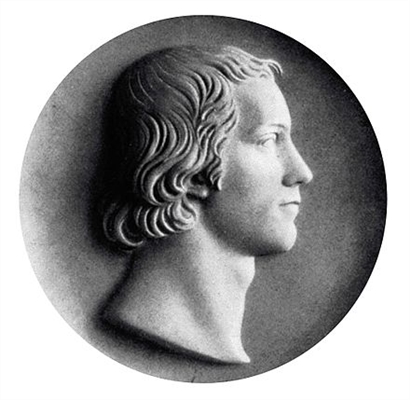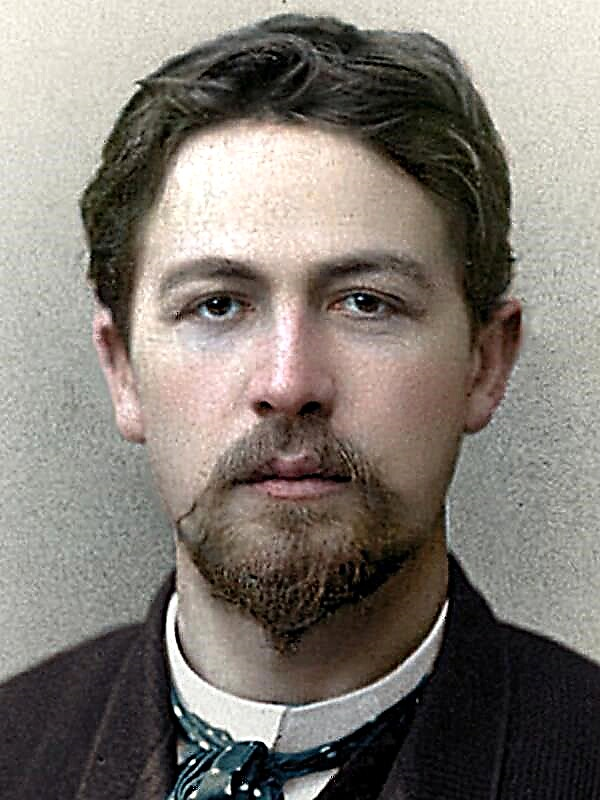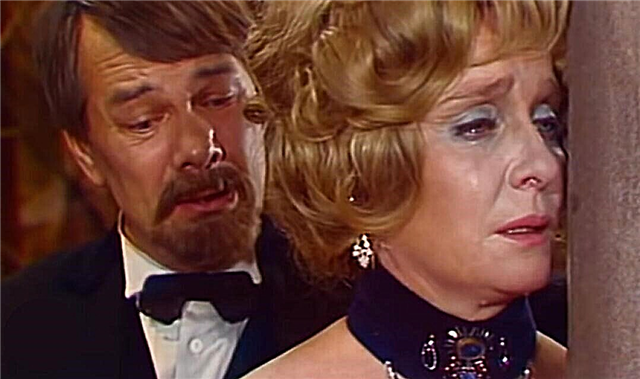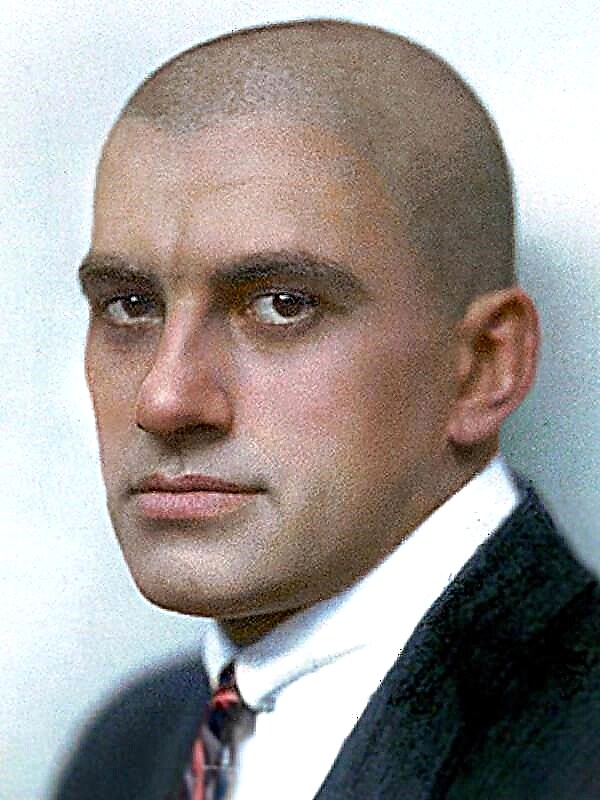Stepanida and Petrok Bogatka live on the farm Jachymovschina, three kilometers from the town of Vyselki. Their son Fedya serves in the tank forces, daughter Fenya is studying "for a doctor" in Minsk. The war begins. The front swiftly sweeps east, the Germans come. There comes a terrible life in the unpredictability of new ills.
Initially, the Germans hosted only in the town and did not visit the farm. The first are "their" - policemen Gouzh and Kolondenok. The kolondenok once, at the time of collectivization, was an errand boy at the village council. Although Gouge is a distant relative of Petroc, he grossly humiliates the owners, demanding unquestioning obedience. Petrok suffers insults and threats, Stepanida keeps himself proud and defiant. Goog recalls that she was a collective farm activist, and threatens reprisal. Finally, the policemen leave, having drunk the brew brought with them. Stepanida scolds her husband for his ingratiating behavior. The arrival of the police was not accidental - Gouge looked after a farm for a German officer and team. A few days later, the Germans arrived in a heavy truck. They order the owners to wash the hut for the officer, while Stepanida and Petrok themselves are expelled to live in the source. The Germans carry out a complete defeat in the economy. The hosts watch all this with fear and expect even greater troubles. When Stepanida tries to show that the cow is giving little milk, the Germans themselves milk the cow and beat up the mistress for “resistance”. Next time Stepanida secretly throws all the milk into the grass. Having not received milk, the feldwebel shoots a cow. While the Germans are busy with cow carcass, Stepanida manages to hide behind the farm, in a badger hole, the surviving piglet. Helps her in this deaf-mute shepherd Janka. At night, Stepanida steals the cook’s rifle and throws it into the well. The next morning, the Germans shake the whole source in search of a rifle, taking Petrok’s violin. In the afternoon he is forced to dig a closet for an officer. Encouraged by the fact that the officer praised him for his work, Petrok decides to go in the evening to ask for a violin. He plays the Germans for a long time. The violin is returned. At night, close shots and screams are heard: "Bandit!" The Germans drag into the courtyard of the shot Yank, who knows for some reason who approached the farm. The next day, after the messenger arrives on a motorcycle, the Germans gather and leave the farm. It seems to Stepanida that she ceases to feel herself in this world, and thinks only: for what? Why did such punishment fall on her, on people? And memory carries it ten years ago ...
Then a collective farm was organized in Vyselki. At the next meeting, an ombudsman from the district spoke, scolded everyone for being unconscious - except for members of the commander, no one was registered on the collective farm. The eighth meeting ended the same way. A day later, a representative of the district committee, Novik, applied a new method of organizing a collective farm: on a combo, the question was raised of dispossession of those who did not want to record. Intimidating the members of the comedian with the often repeated words “sabotage”, “deviation”, Novik tried to ensure that the advantage in the vote was for dispossession. At these meetings there was an errand boy at the village council - the overgrowth Potapka Kolondenok, who used everything he heard in his notes in the regional newspaper. Then, with horror, the members of the commander read these notes, signed by the pseudonym Literacy. They mentioned many small townsmen, not fists at all. But since they used hired power, they were dispossessed. Stepanida recalls the grief of families thrown out of the houses into the snow, taken away with small children into the unknown. The policeman Vasya Goncharik, from the locals, after he dispossessed the family of his beloved girl, shot himself. He was the elder brother of Yankee, who was then three years old and who, having become a deaf-mute for life, was shot by the Germans in the Yakhimovschina farm.
Stepanida also recalls how this farm went to him and Petrok. It belonged to Pan Jachymovsky, an impoverished nobleman, a lonely old man. Stepanida and Petrok, having married, worked with the old man and lived on his farm. After the revolution, property and land were taken from the gentry and divided among the poor. The farm went to the rich; of the vast land holdings that Jachimovsky leased, Stepanide and Petrok cut two tithes on the mountain. In order to ward off the earth, Petrok put an end to the mountain, and the people called this mountain Golgotha. When Stepanida came to Jakhimovsky to ask for forgiveness - she was tormented by her conscience that she owned someone else's property, - the old man replied: “Pan Jesus will forgive. Stepanida made excuses - they say that it wouldn’t be for them, they would have given it to others anyway, but the old man said in distress: “But you didn’t refuse ... It’s a sin to stare at someone else’s.” They fed the old man, looked after him, but he did not eat anything and one terrible day hanged himself in the barn. On this day, before finding the old man in the barn, Stepanid and Petrok were found on the field of a frozen lark, who was deceived by the first heat. And Stepanida decided that this was an omen of trouble, her sign. And so it happened. The horse fell, the clay earth did not give birth, and the whole difficult life did not bring the Bogatyns neither happiness nor joy. Then - collectivization with its human grief, hopeless collective farm labor, and now - the war ...
For the dead Yanka come Goog with Kolondenko on a cart. Gouge orders Petrok to go to work to finish building a bombed bridge. From work Petrok comes barely alive. He decides to expel the moonshine in order to pay off the policemen. For the coil for the apparatus, he exchanges his violin. But moonshine does not help - the policemen demand it more and more, once the policemen from the distant village also tumble in. Not finding the moonshine that Guzh had already taken, “alien” policemen beat the hosts half to death. Petrok decides to end moonshine - breaks the device, digs up a bottle of pervacha hidden in the forest, carries it home to treat the battered Stepanida. Guzh is already waiting for him. Despair makes Petroc shout out at the police and Germans all the curses that have accumulated in his soul. The police beat him, drag him, half-dead, to a place - and Petrok disappears forever ... A man disappears who has not done harm to anyone in his whole life, limp, but still once touching the ruthless millstone of history. Once in a snowy winter, some cars got stuck in a big truck near the farm. People from cars went into the hut to warm themselves. The main one, looking closely at the hard life of the owners, gave them a dime - for medicine for his ill daughter. This person was the chairman of the Central Executive Committee of Belarus Chervyakov. And when the chairman of the collective farm Levon was arrested, Stepanida collected signatures from the collective farmers under a letter about the innocence of the chairman and sent Petrok to Minsk - to send a letter to Chervyakov and at the same time repay the debt - the Chervonets. Petrok was late for the day - Chervyakov was already buried ...
Stepanida, recovering from the beatings, after she heard Guzh’s reprisal against Petrok, decides to take revenge on the policemen, the Germans - all those who destroyed an already miserable life. She knows that at the bridge one of the locals took an unexploded bomb. Stepanida is sure that only Cornel could do this. She goes to a place to try to hand over something to eat to Petrok in prison and ask Kornila for a bomb. They drive her from prison, taking the transfer. The sly Cornila agrees to bring a bomb to her on the cart - in exchange for the surviving piglet. Stepanida decides to bomb a bridge that has already been rebuilt. Stepanida for the time burying a bomb in the ground. In a place she meets a convoy leading somewhere to Cornelo, and in fear returns home to hide a better bomb. Exhausted, Stepanida goes to rest in the source. Policemen are bursting at the door, they demand that she show where the bomb is. Stepanida does not open. The door begins to break, shoot through it. Stepanida douses the inside with kerosene and sets it on fire. Thinking that the bomb is inside, the policemen scatter. No one extinguishes a blazing flame, fearing a powerful bomb explosion. "But the bomb was waiting in the wings."

